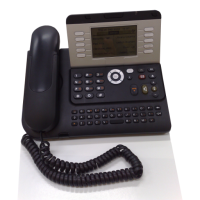Skype is notably the most well-known application that allowed talking over the internet to become a practical reality. Now, with Microsoft’s recent buyout earlier this year of Skype, the popularity is sure to grow even greater. However when it comes to businesses, more robust IP solutions are needed. If you have considered moving to an internet based phone system, consider these three main aspects listed below to get you started in the right direction.

The Importance of Internet Connection Type and Speed
When migrating to an IP Phone system, you will find yourself facing the same concerns about voice and call quality as you do with your everyday cell phone. With cell phones you are concerned about coverage – does the carrier offer service where you live? Is the service reliable or are you constantly looking to get out of a dead spot? You want quality service because it will affect the quality of your call and for businesses, this can affect well, your business.
So it is with internet phone service. However, it’s not as much on the shoulders of the carrier (although it can be to some degree), it is also on the shoulders of the quality of the existing internet connection. For example, everyone knows DSL is slower than Cable, and Cable is slower than Fiber. The greater the bandwidth then the greater the call quality because in layman’s terms, bits and pieces of the encoded voice messages will not be degraded or lost during transmission. In general, the faster the speed such as found with Fiber – the greater the bandwidth, call quality and service.
If you can only run on dial up or some other slow connection with limited bandwidth then migrating to a phone service which depends on the internet will not be for you. There are ways around this, but it will cost a pretty penny. The most “high end” option would be to have a MPLS connection which in essence connects you with one of the largest carriers, Level 3. You plug into this super network and your problems are solved. However, be prepared to spend a lot of money. This is not for mom and pop shops, but for large enterprises which must have a secure and smooth connection to the internet with guaranteed quality and service.
What Are Your Needs?
Another factor to consider is to evaluate the needs for your business. If you have a small business and work out of the home, you might want to consider a VoIP system. VoIP stands for Voice over IP and people who sell VoIP often do so by using their own IP PBX system in their own databases – in other words it is called Hosted IP. A PBX system is what controls all the user phone system settings, such as personal greetings, music on hold, extension forwarding, auto attendants, etc.
If you are requiring a large number of minutes and/or phone numbers, then going with a Unified Communications Phone system such as ShoreTel, Zultys or Microsoft Lync may be the answer. A Unified Communications system (UC) allows users to seamlessly integrate interactive communication tools with their phone system. One example is the use of IM (Instant Messaging). True, it can be used simply for IM-ing back and forth among co-workers, but it can also be used to take phone calls that dial to your main number and have them rerouted to a different number.
UC platform systems cost more than regular hosted VoIP and will rely on SIP which is a pimped up version of VoIP. SIP stands for Session Initiation Protocol, and phone systems which use it will still use the internet, but with different protocols for sending and receiving. There are specific SIP Service Providers which make this happen. If you call your local phone company and ask for SIP for your business you will most likely be transferred to a department that specializes in that type of service. This option is not for your average Joe business.
Should You Host Your Own PBX?
Hosting your own PBX requires a few considerations – cost of the hardware, infrastructure and hiring a person to manage the technology to perform updates, setup and configuration. If you have the choice between hosting your own PBX or outsourcing, carefully lay out the pros and cons, and as with most departments who make the final decision – map out the costs in detail before proceeding.
If you know the solution will provide long term savings, specify those as well to illustrate that the long term savings will cover the initial upfront costs.
Not every business needs a PBX however. Some SIP Service Providers connect directly (natively) into the phone system, thus by-passing the need for any kind of PBX, gateway or router. If you have a system such as ShoreTel or Microsoft Lync, ask them for a list of providers that connect natively. Upfront hardware can costs in the thousands, so make sure to do your research!
Upgrading to an internet phone system is becoming more and more commonplace. Applications such as Skype, have certainly created an awareness of making calls over the internet. Although some businesses use Skype, it is becoming more common that they are looking at higher quality services with greater business-like features and functionality, and of course large cost savings. When determining if it is the right time for you and your business, consider all the angles including long and short term implications. Who knows – your CEO may just give you
a raise!
This article was contributed by Liz Krause of EtherSpeak, Inc. which is one of just a few Microsoft lync trunk providers. They are providers for additional popular UC Platforms as well and provide SIP Encryption services for businesses requiring enhanced security and privacy needs. She first learned about VoIP when her husband used hosted VoIP for his home based software company 6 years ago.
